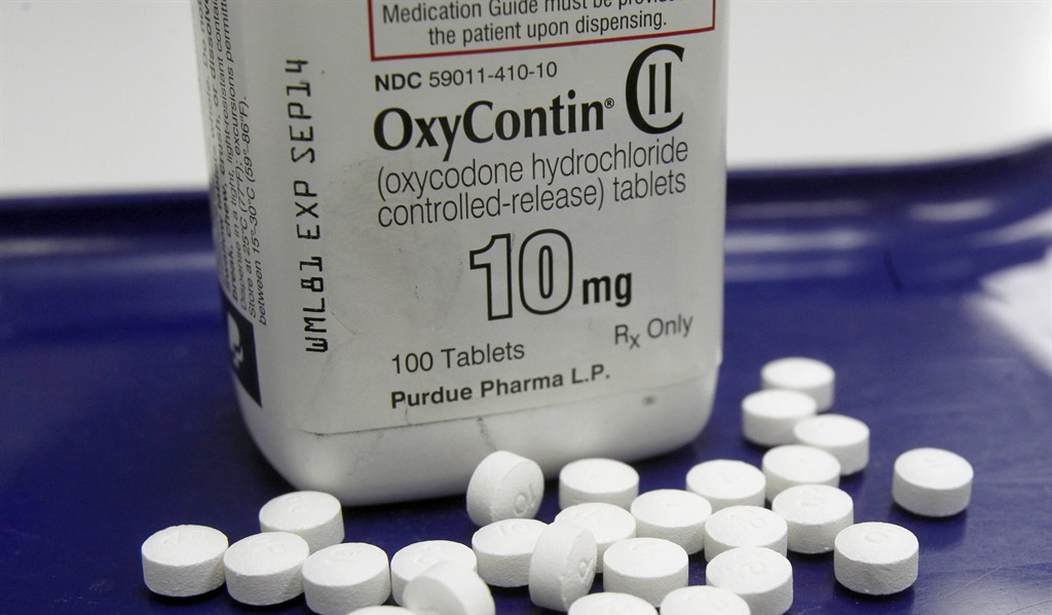NBC published an investigative report Sunday on the rise of shady drug-treatment operations in Florida. In a matter of a few years, drug treatment has gone from an underfunded business with just a few operators to a billion dollar bonanza. NBC describes the Florida coast as America’s “rehab capital.” The flood of funding supporting this new business model is largely the result of Obamacare, which mandated that individual insurance cover substance abuse treatment. From NBC News:
“This is an entire industry that’s been corrupted by easy money,” said Palm Beach County’s top prosecutor, State Attorney Dave Aronberg. “Unscrupulous actors have taken advantage of well-intended federal law, and a lack of any good law at the state level, to profit off people at the lowest stages of their lives.”
That law is the Affordable Care Act, which along with the federal Mental Health Parity Act passed in 2008, was meant to ensure people suffering from addiction could get the care they needed. Together they required insurers to cover substance abuse treatment, barred companies from rejecting those with preexisting conditions, and allowed young people to stay on their parents’ insurance until age 26. But this broader coverage met with little oversight.
Those looking to make cash found the country’s opioid epidemic had provided them with a trove of desperate people, many young and hooked on pills or heroin, and access to a deep pool of insurance dollars. Everyone got in on the business. Substance abuse treatment in Palm Beach County used to consist largely of a scrappy network of treatment centers and sober homes that just scraped by. In the past few years it’s become a $1 billion business, according to the Palm Beach Post’s calculations.
“It’s a total scam,” said Aronberg. “Not only are taxpayers footing the bill, but people are dying unnecessarily because of this.”
The Palm Beach Post delved into some of the questionable practices being used by the drug-rehab industry:
Addicts, especially those with insurance, have become a sought-after commodity. One newly formed company, treatmentcalls.com, operates a call-center and allows treatment centers to bid on callers seeking treatment based on their insurance coverage — HMO, PPO or cash. Some centers bid as much as $1,000 for a call screened by the service.
When inpatient treatment ends after 30 to 60 or 90 days and the client moves out, insurance continues to pay for intensive outpatient treatment and partial-hospitalization programs, including regular drug testing and therapy. But they don’t pay for room and board.
With no job, little money and no place to live, newly clean addicts — especially those with insurance — have become targets of unscrupulous business owners or used as pawns in a variety of local scams.
Addicts live in “sober homes” which work in conjunctions with the treatment centers, i.e. someone is referred to a particular home in exchange for the promise the home will recommend the patient continue using certain outpatient services. These unregulated sober homes have an incentive to keep people using drugs and therefore indirectly paying the bills. The Palm Beach Post even reports some of the detox centers may be paying the sober homes a bonus for every relapse case. Jumping back to NBC News, there’s a first hand account that some sober homes are content to let recovering addicts use drugs:
“It’s like hustling humans,” said Drew, a 21-year-old from West Virginia who was living in a sober home in Delray Beach last February. “They’ll take extra insurance money and pay you to live there and just let you get high because the owner’s making bank.”
Delray Beach Mayor Cary Glickstein estimates that his city of 66,000 has about 700 sober homes that house up to 7,000 people in recovery. Nearby Lake Worth, Boynton Beach and West Palm Beach likely hold hundreds more. Exactly how many is hard to know, because sober homes operate without any kind of oversight — and the bad homes, he said, are crowding out the good.
“These kids are just cycled through different houses,” said Glickstein. “There’s no supervision. Many times they’re supervised by convicted felons, people that are trafficking drugs while they’re supposed to be supervising kids in recovery.”
Addiction is a serious and growing problem in the U.S. with opioids like Fentanyl killing thousands of Americans each year from overdoses. Some response to the crisis is clearly needed, but the sudden influx of treatment money without any real oversight appears to be creating a bad situation in America’s “rehab capital.” Here’s NBC’s video report on the situation in Florida.








Join the conversation as a VIP Member